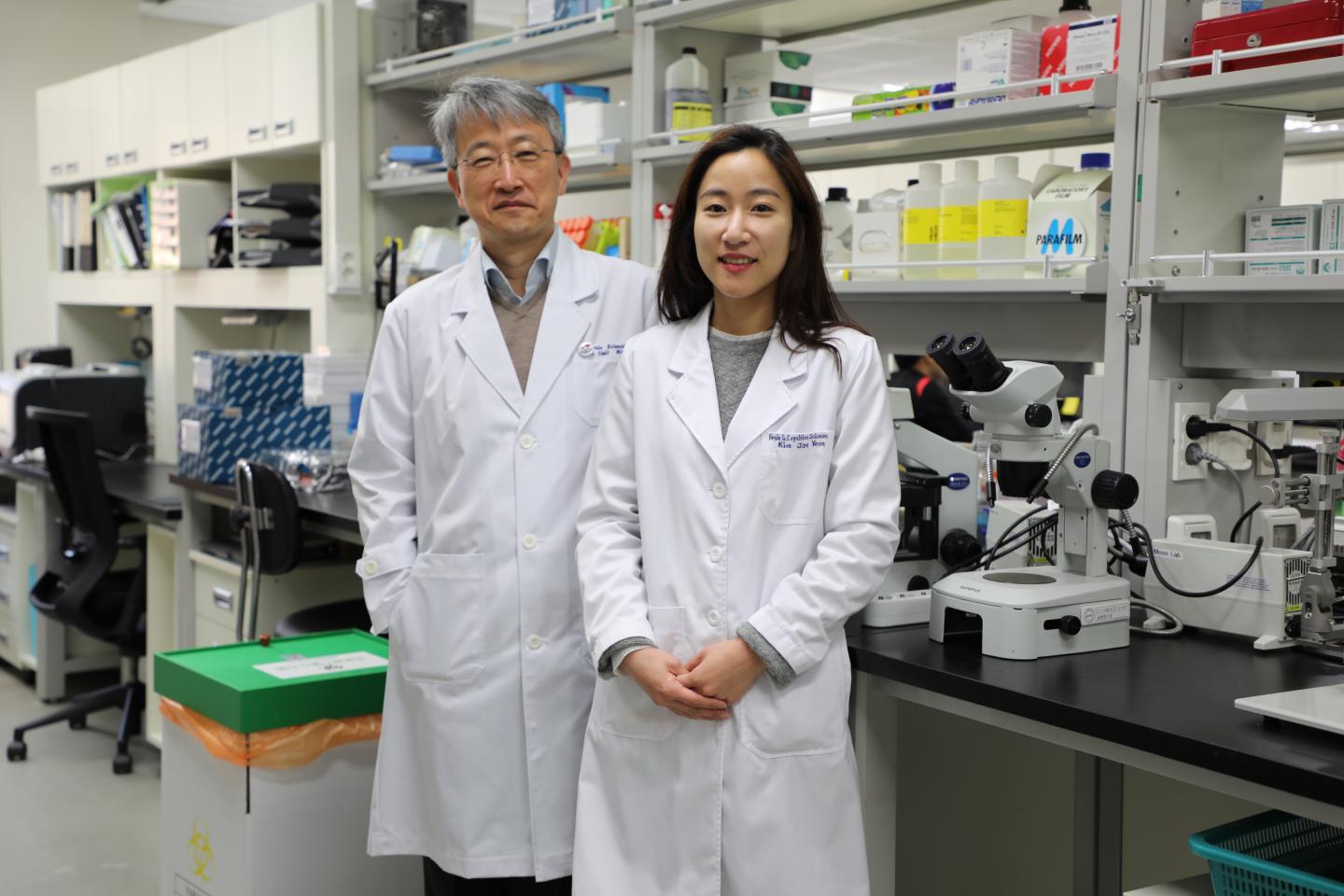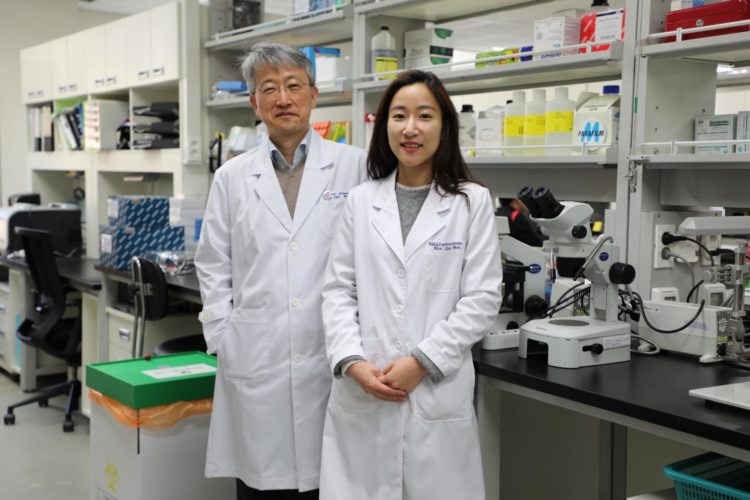DGIST Professor Cheil Moon’s research team identified the molecular mechanism of innate olfactory behaviors

Credit: DGIST
DGIST identified causes of hypersensitivity accompanied by neurodevelopmental disorder such as autism-spectrum disorder (ASD). This is expected to make huge contributions to the early diagnosis of sensory-defective symptom brought with neurodevelopmental disorder and cancer as well as the improvement of anti-cancer drug side effects.
DGIST announced that the Department of Brain and Cognitive Sciences found the important mechanism of ‘Abl1’ gene, which is involved in the early developmental stage of inhibitory neuron for forming normal sensory circuits.
Before formation of cognitive or verbal neural circuits in brain development, sensory circuits are developed explosively for one year after birth. An ASD with cognitive and sensory defects is caused if inhibitory neural circuit is not formed properly due to genetic and environmental factors during the brain development. While studies on ASD treatment have focused on the abnormal development of inhibitory neurons related to cognitive disorder, no sufficient research has been made on the specific causes and mechanisms of sensory defects that occur first.
The DGIS research team discovered for the first time that Abl1 gene is expressed and activated explosively during the early development of inhibitory neurons in the mouse olfactory bulb. They also learned that if the expression or activation of Abl1 is inhibited using lenti-virus , inhibitory neurons cannot reach their cell layers accurately due to structural defects.
A candidate gene of ASD, Abl1 is also well-known to cause cancer. If Chronic Myelogenous Leukemia (CML) patients aged 2-9 with active brain development intake target anti-cancer drug Gleevec (Imatinib), an Abl1 deactivator, more than 60% of them show sensory related-side effects such as olfactory hallucination. Based on this, the research team confirmed that the inhibition of Abl1 expression and activation greatly increased the olfactory sensitivity of mouse as the side effect of Gleevec intake.
The research team also discovered that using proteomics , Abl1 temporarily phosphorylated doublecortin (Dcx), a cytoskeletal protein that plays a crucial role in the structural development of brain. This proposed that Abl1 regulates the dynamic of microtubule with a new signal transmission system between Abl1 and Dcx.
Professor Cheil Moon in the Department of Brain and Cognitive Sciences at DGIST said “We found a very important clue to understand the mechanism of hypersensitivity appearing in neurodevelopmental disorder or cancer disease, which are yet to be known clearly. We hope to see follow-up research to overcome other sensory disorders based on our research.”
###
This research was participated by Jae Yeon Kim, a Ph.D. student in the Department of Brain and Cognitive Sciences at DGIST as the first author, and its findings were published on the online version of ‘Cell Report,’ a world-renowned international journal on the 7th. This research was carried out with the support of “Bio and Medical Technology Development Project” by the National Research Foundation of Korea as well as “Hub-Spoke based Convergence Brain Research Project” by the Korea Institute of Brain Science.
Appendix: 1. Profile of Professor Cheil Moon in the Department of Brain and Cognitive Sciences at DGIST.
Dr. Cheil Moon in the Department of Brain and Cognitive Sciences is currently the Director of the Center for Olfactory Convergence Research at DGIST. He received his bachelor’s degree in biochemistry from Yonsei University in Seoul, South Korea in 1989 as well as his master’s degree in biotechnology and doctoral degree in neurobiology from the Imperial College London. Dr. Moon is concurrently a member and policy executive of the Korean Society for Brain and Neural Science; president of the Korean Society for Chemical Sense; and expert adviser for the Brain Research Promotion Screening Committee in the Ministry of Science and ICT. In the past, Dr. Moon held several prominent academic affairs positions at DGIST from 2005 to 2018 and was also an expert member for the Presidential Advisory Council for Science and Technology from 2014 to 2017. He was the vice president of the Foundation Board for the Korea Institute of Brain Science under Ministry of Education, Science, and Technology in 2011-2012; expert member for the Promotion Committee of Bio and Medical Technology Development in the Ministry of Science, ICT, and Future Planning in 2013-2015; expert member for the National Science and Technology Screening Committee for the Ministry of Science and ICT in 2017-2019; and was an expert member for the Biotechnology Board of National Research Foundation’s Basic Research Division in 2012-2016. Dr. Moon’s research focus and major achievements include chemical senses as well as the structure and functions of the olfactory nervous system. He has published 80 papers on both Korean and overseas academic journals, authored 4 books, and translated around 10 books. He has also registered 70 patents in Korea and abroad and established research institutes ‘MegaFam’ (2015) and ‘Cyrus’ (2019). Recognized for his achievements, Dr. Moon received the Oversea Research Students Awards by the U.K. Ministry of Education in 1992, National Research Service Awards by the NIH, U.S. in 1999, Proud DGIST Award and DGIST Faculty Awards in 2011, as well as the President’s Commendation on National R&D Performance Assessment in 2015.
Media Contact
Kwanghoon Choi
[email protected]
82-537-851-135
Original Source
https:/
Related Journal Article
http://dx.





